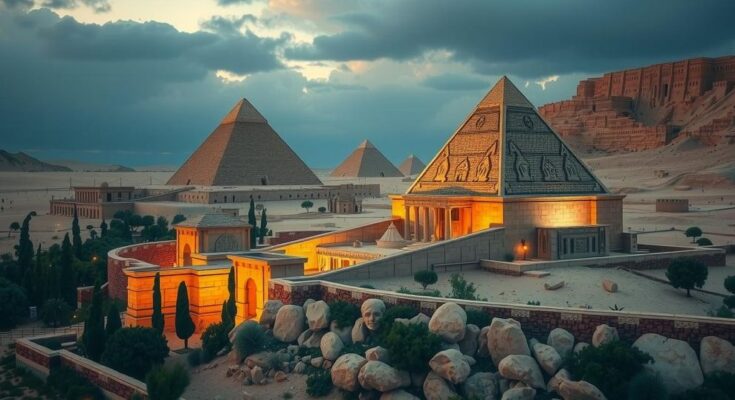Egypt plays a vital role in mediating the conflict between Israel and Hezbollah, as articulated by Foreign Minister Badr Abdelatty, who is engaged in daily communications with various parties to seek an end to hostilities. Egypt’s historical involvement in Lebanese politics and its relationships with regional and international stakeholders underscore its commitment to stabilizing the region amid escalating tensions since the October 7 attack.
Egypt’s involvement in the Israel-Lebanon conflict is underpinned by its historical role as a mediator and its contemporary political ambitions aimed at regional stability. Recently, Egyptian Foreign Minister Badr Abdelatty stated that he is in daily contact with various international and regional entities to cease the violence stemming from Israel’s actions against Lebanon. This move aligns with Egypt’s long-standing interests in Lebanon, especially in the wake of the October 7 attack that exacerbated tensions. Amid the intricacies of this conflict, Egypt must navigate its influence effectively against Western pressures while maintaining dialogue with all Lebanese political factions.
Egypt’s role in Middle Eastern conflicts has been marked by its strategic mediating efforts, especially evident during the Arab-Israeli conflict, including the pivotal Camp David Accords of 1978. Egypt has previously engaged in Lebanese affairs dating back to the Arab Cold War and the Lebanese civil war. In modern times, Egypt’s stability-related interests include battling armed factions and deterring regional adversaries. With a unique relationship with both Israel and Arab states, it positions itself as an essential mediator, especially during times of armed conflict such as recent hostilities in Gaza and Lebanon.
In conclusion, while Egypt faces considerable challenges in mediating the Israel-Hezbollah conflict, it remains committed to facilitating dialogue and calling for a ceasefire through established diplomatic channels. Its historical precedence as a peacemaker, coupled with relationships across the Arab world and with Western powers, enhances its potential as a significant player in the pursuit of regional stability and a resolution to ongoing tensions. Therefore, coordinated efforts with international stakeholders will be crucial for achieving a sustainable outcome.
Original Source: www.arabnews.com




